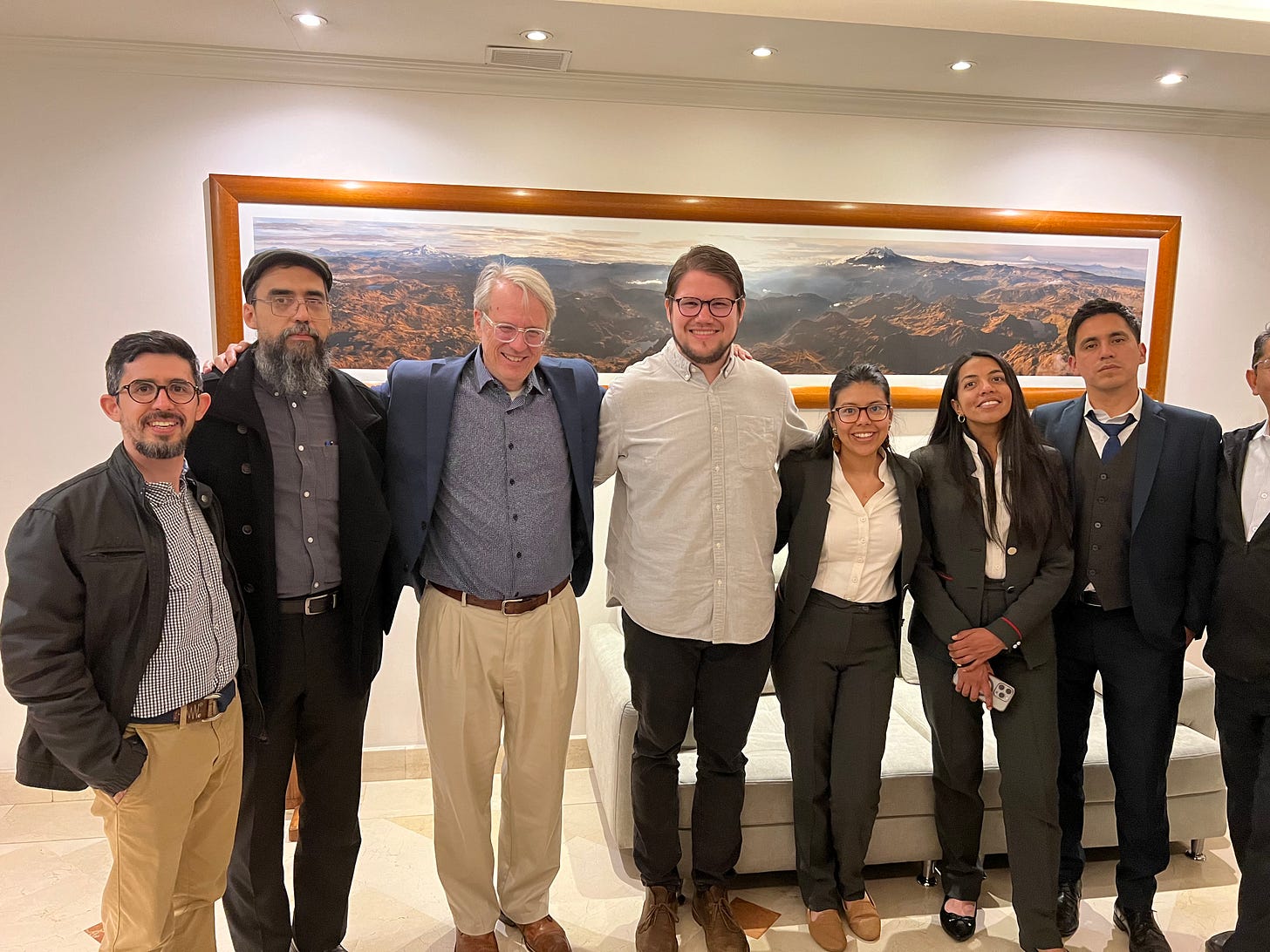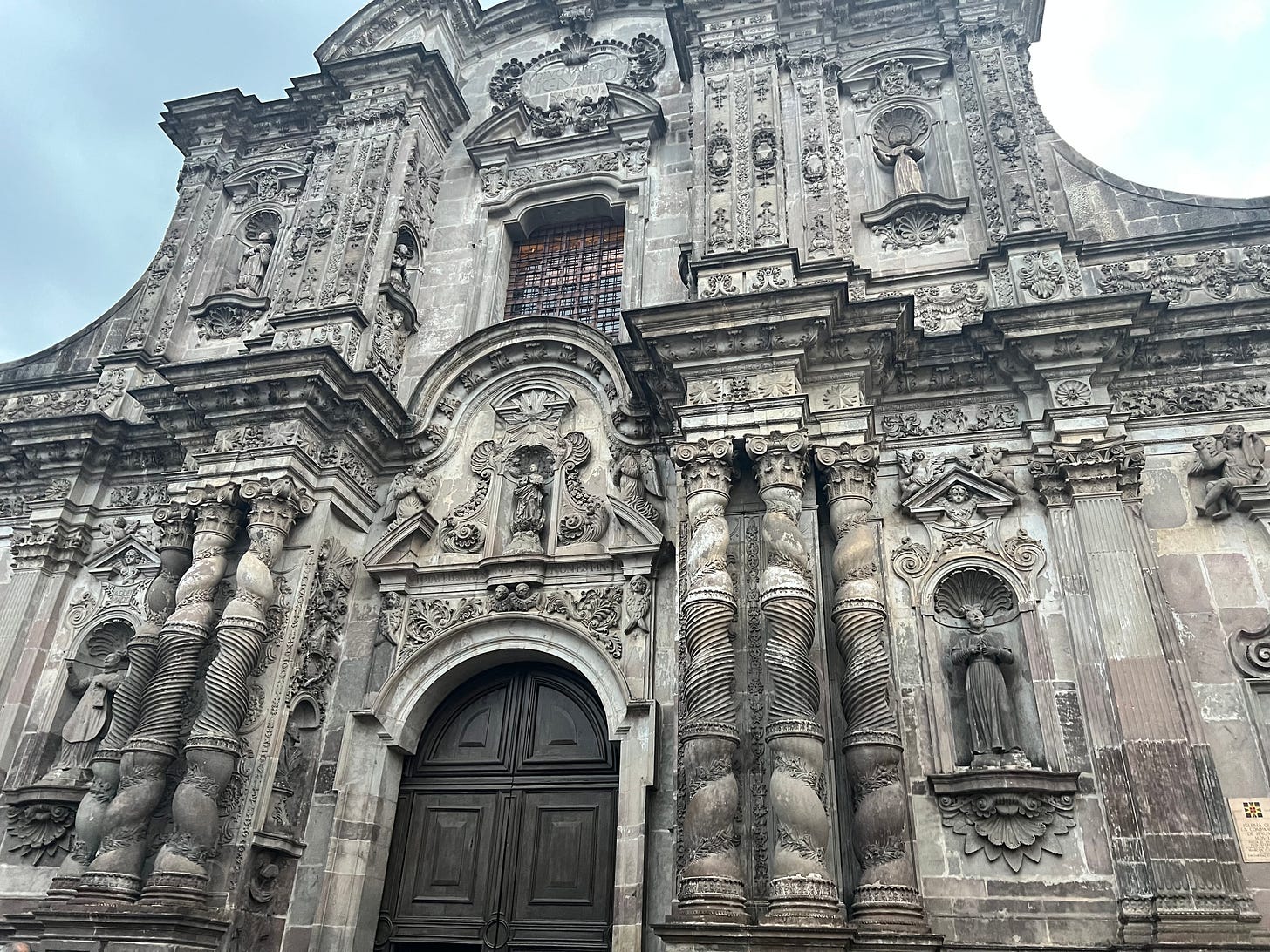For a couple of years now, I have attempted to visit Ecuador and a bilingual classical school in Cuenca. I could not go last year, but instead two administrators and a teacher from Cuenca visited us here in Camp Hill as well as a bilingual school in Oklahoma City.
Last year, from the beginning, we here at Classical Academic Press were moved by their earnestness and zeal of Latin American colleagues. Giovanni (head of school), Sylvia (principal), and Gloria (bilingual teacher very good at English) spent a few days with us talking about the history and philosophy of classical education, how it was being renewed in the U.S., and how it could be renewed in Ecuador and Latin America.
This October I was able to return the favor and visited Unidad Educativa Bilingue Interamericana in Cuenca. Giovanni and his team arranged for two conferences on classical education, one in Quito and one in Cuenca. Over the course of a week in Quito and Cuenca, I must have spoken about 20 times to various groups small and large. I had a ball.
In Quito, Giovanni organized a conference at a church that included about 75 people representing several schools that were all interested in learning more about classical education. Also in attendance was the leadership team from a bilingual classical school in Colombia called Murphy Christian School. Then we traveled on to Cuenca (in the center of the country) for another conference hosted at the bilingual school.
There is so much that I could say–I enjoyed dozens of conversations with teachers, administrators, board members, and students. The high school students, in particular, impressed me with their intelligence, inquisitiveness, and longing. I spoke to a large gathering of history students from the upper school and opened with the question, “What is the purpose for studying history?” After a short pause, one of the girls in the senior class said, “To learn what not to repeat in the future.” I then spend about an hour with them discussing what those things were in the past that we ought not to repeat, and why.

I also spoke to a group of over 100 parents about how classical Christian education is the inheritance of the church, and is in fact, “the education of the church” cultivated, preserved, and handed down to us. One father in the crowd, practically jumped out of his chair to share these verses from Matthew 13:
Then He said to them, “Therefore every scribe instructed concerning the kingdom of heaven is like a householder who brings out of his treasure things new and old.”
This is a summary of the parables that Jesus had given to his disciples in Matthew 13 (the parable of the sower, the parable of the wheat and tares, the parable of the pearl in the field, the parabler of the dragnet). What the Scriptures give us (in the Old Testament and the New), and what the Church gives us is treasure, treasure that is both old and new.
How perceptive this father was, who discerned that what we now call classical education is in fact just education–the education that was old but is ever new, the past living in the present and future.
This father is representative of so many that I met in Quito and Cuenca–men and women (and indeed students too) who are hungry and zealous to receive with gratitude what is given to them and to us all–educatio, paideia, the education of the church.
The Ecuadorians and the Colombians have some obstacles to overcome–a recent history of progressive education that has charmed and then discouraged nearly everyone–but they are on the move, as they have become aware of the riches that are rightfully theirs and ours, the education of the church.
I have no doubt they will succeed in renewing this education, whether it be in 10 years or a hundred. Their zeal and love is the kind that builds cathedrals, cares little for the passing of time, since they know education is preparation not merely for this life but the next. This focus beyond this life seems to energize what they do here on earth.
The question for many of us then naturally arises: Who would like to serve with them in Ecuador and Colombia? I, for one, will be going back.



